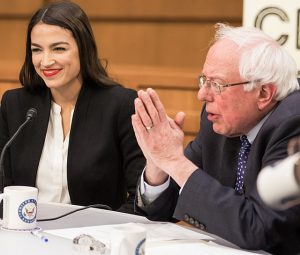1.4 Ideologies: Dynamic Traditions
Gregory Millard
Ideological debate is never static. Any given ideology will enjoy historical periods of greater or lesser popular impact. Fascism may have had progenitors in late 19th-century and early 20th-century conservatism, but it is not much of a simplification to say that it exploded onto the European scene after the First World War and utterly evaporated as a mainstream option following the crushing defeat of the Axis Powers in World War Two. Its heyday barely lasted 20 years. To take a more durable example, socialism was seen as a primary – often the primary – challenger to liberalism for most of the 20th century. Many people believed that the forces of history were on the side of socialism and that its triumph was inevitable. Yet, by the 1990s socialism had become widely seen as passé, with liberalism standing triumphant (Schwarzmantel, 2008). Only in the 2010s did socialism resurface as a respectable option in many countries, with influential politicians such as Bernie Sanders and Alexandria Ocasio-Cortez explicitly defining themselves as “democratic socialist.” So socialism went from being pegged as the likely historical victor in an ideological battle with liberalism to spending a generation in the political wilderness.

Similarly, anarchism went from being a popular option in radical circles in the late 19th century to almost completely marginal after the Second World War. Meanwhile, liberalism, perceived as utterly dominant and practically unchallengeable from 1990–2010, is now thought by some to be losing influence, perhaps corroded from the left by a loose semi-ideology of “social justice,” and on the right by illiberal populism.
Thus, specific ideologies wax and wane in terms of their influence over mainstream politics. Equally important – though sometimes harder to grasp – is that ideologies themselves are dynamic and changing phenomena. What counts as mainstream thinking within any given ideology shifts over time. Yes, it is possible to speak about a core set of concepts and beliefs that make a given ideology what it is; each chapter of this book will include a list of such core beliefs. Nevertheless, certain concepts give way before others within an ideology as it develops.
An example may help. The ideology of liberalism (as we will discuss in chapter 3 Liberalism) is associated with many concepts, including individualism and individual liberty. But for 19th-century liberals, human progress was an equally fundamental principle, and for these liberals it seemed obvious that some societies and cultures were further down the path of progress than others. In fact, they believed that some cultures were so hopelessly “backward” that
(a) it was entirely justifiable for those societies to be ruled by more advanced ones so that they may be lifted out of backwardness; and that
(b) it would be a good thing if some backward cultures ceased to exist altogether, and instead be assimilated into the norms, beliefs, languages, and practices of more advanced societies.
John Stuart Mill, probably the most influential liberal thinker of the 19th century, believed precisely these things. This sort of thinking played a tragic role in shaping Canada’s policy toward indigenous peoples. These peoples were perceived to be in need of “civilizing” and thus were denied equal civil and human rights; ultimately, they were subjected to brutal policies of forced assimilation – which we now regard as genocide.
Today’s liberals tend to be appalled by such views and embarrassed that earlier generations of liberals subscribed to them. This particular understanding of progress, then, was once a key component of liberalism but is no longer. Its influence has receded dramatically since the end of the Second World War, when the horrors of Nazism revealed the ultimate terminus to which such thinking leads. In short, what counts as mainstream liberal thinking has changed over time, even if important ingredients in the liberal recipe remain in place (which is why we can plausibly categorize people from different eras as “liberals”).
Similar historical shifts can be observed in other ideologies. Ideologies, then, are mutable – best conceived as dynamic, living, evolving traditions, which each generation alters and redefines in light of its needs rather than as completely fixed and unchanging sets of ideas.
Media Attributions
- Bernie & AOC © Senate Democrats adapted by TDKR Chicago 101 is licensed under a CC BY (Attribution) license

